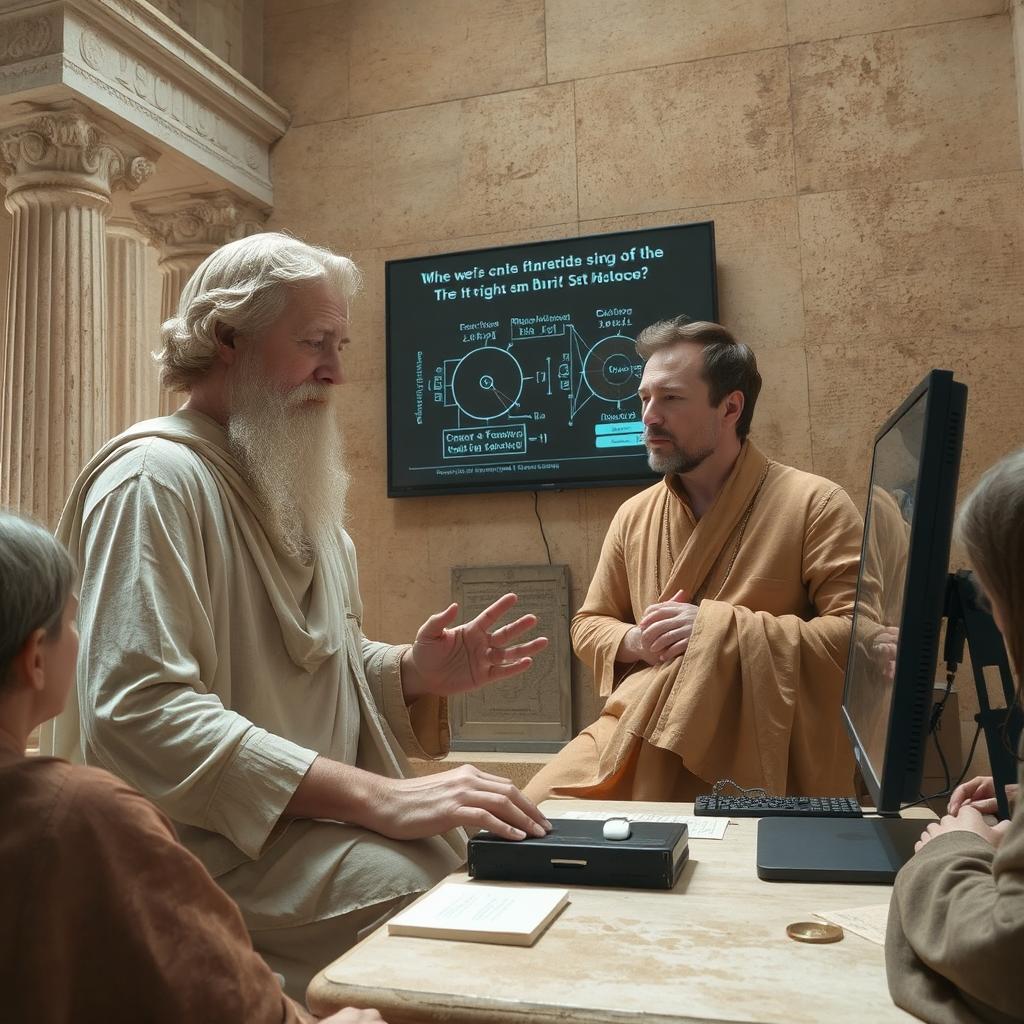First Principles Thinking: the secret of creative genius, from Aristotle to Elon Musk

What if you could solve complex problems by peeling away assumptions, getting down to their simplest truths, and building up from there? This is the essence of “first principles thinking”, a method used by Aristotle to understand the world, and by modern innovators like Elon Musk to revolutionize industries. Though centuries apart, they share a foundational mindset that can also help us in everyday problem-solving.
Aristotle’s First Principles: where it all began
Aristotle, one of the most influential philosophers of ancient Greece, saw first principles as the foundation of true knowledge. For him, a “first principle” (ἀρχή, archê in Greek) was an indivisible truth—something that couldn’t be deduced further. In his work Metaphysics, he describes first principles as the “origin” from which other knowledge must derive. Imagine an architect designing a building: the plan must rest on solid principles of physics and geometry. Similarly, Aristotle believed that everything we know should rest on solid, undoubtable truths.
In philosophy, this approach is essential for deep thinking, but it also has an everyday application. Aristotle encouraged people to look at their assumptions critically and to separate what is essential from what is merely an accepted norm. He taught that by understanding a problem at its most basic level, we can find paths forward that wouldn’t be visible when clouded by preconceived ideas.
Elon Musk’s modern take on First Principles Thinking
In recent times, Elon Musk has popularized first principles thinking as a tool for innovation. Unlike many in his fields, Musk doesn’t accept that the established ways are the only or best ways. Take, for example, his work on electric vehicles. Instead of simply asking, “How do we improve cars?” he broke down the problem to first principles: What materials and processes are necessary to build a car? Why are electric cars so expensive? This thinking led him to find lower-cost alternatives and solutions that traditional automotive companies hadn’t explored.
In Musk’s own words, “First principles is kind of a physics way of looking at the world… you boil things down to the most fundamental truths…and then reason up from there.” By doing this, he not only brought affordable electric vehicles to market but also changed the aerospace industry with reusable rockets.
Applying First Principles Thinking in daily life
First principles thinking isn’t just for philosophers or billionaires. We can use this approach in daily life to tackle problems that seem daunting or complex.
Identify the problem and strip away assumptions: Say you’re trying to improve your personal finances. Start by asking, “What are the fundamental truths about money management?” Stripping away assumptions—like the idea that cutting all luxuries is necessary—may reveal that small, consistent investments or budgeting practices are more impactful over time.
Break down the problem into parts: In managing a busy schedule, it’s easy to feel overwhelmed. But by breaking down each task, you can separate necessary activities from optional ones and streamline your day based on priorities. This way, you tackle the essence of what truly matters to your goals.
Build back up with alternatives: With the essentials clarified, think of new ways to reach your goal. If you’re trying to eat healthier, don’t just follow the latest diet trend. Instead, ask what the body fundamentally needs—balanced nutrients, hydration, and rest. This will allow you to create a more flexible, sustainable plan tailored to your lifestyle.
Practical examples of First Principles in action
Here are some ways first principles thinking can transform ordinary decisions:
Career Transitions: Instead of asking “What other jobs am I qualified for?” ask “What skills do I have, and how can they solve real problems?” This mindset opens new possibilities that align with your strengths and passions rather than just following the next step in a traditional path.
Health Goals: Many people aim to “lose weight” or “get fit.” But breaking it down to first principles (like improving metabolism, enjoying movement, or eating nutrient-dense foods) can help make sustainable changes that support health, rather than just aiming for an abstract number on a scale.
Relationships: In a relationship challenge, rather than focusing on specific arguments or behaviors, consider first principles—such as respect, trust, and communication. By getting to the heart of these values, you can address core issues and rebuild your bond on a stronger foundation.
Embracing a New Mindset
First principles thinking isn’t always easy; it requires a willingness to question assumptions and simplify complex issues, even when it’s uncomfortable. But by practicing this method, we can develop a clearer perspective and tap into our creative potential. Aristotle believed that truth begins by understanding these basics, and by using first principles thinking, we can reveal fresh solutions to age-old problems.
For anyone willing to think deeply, challenge norms, and rebuild from the ground up, first principles thinking offers a powerful way to approach life’s complexities. Whether inspired by Aristotle’s philosophy or Elon Musk’s innovative drive, this approach can transform the way we see—and solve—the world’s problems.


